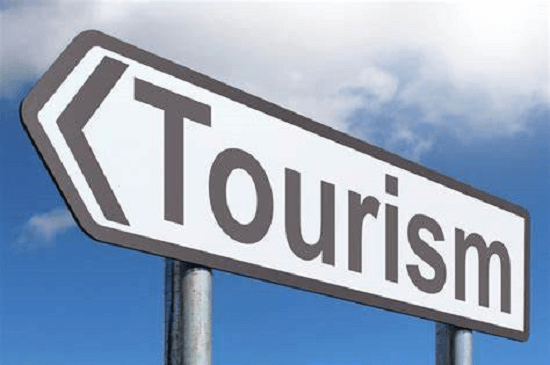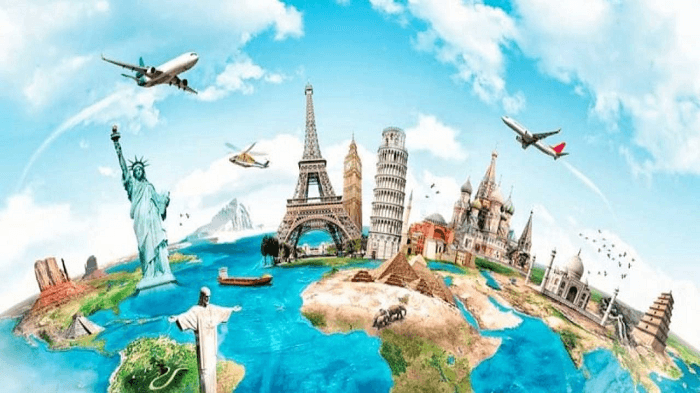Tourism Definition
Tourism is an activity that has been around for centuries, and it is defined as the act of travelling for leisure, business, or other purposes. Tourism significantly contributes to the global economy and has evolved to encompass various activities and experiences. This article will delve into tourism and explore its definition, history, types, and impact.
Defining Tourism
The World Tourism Organization (UNWTO) defines tourism as "the activities of persons travelling to and staying in places outside their usual environment for not more than one consecutive year for leisure, business, and other purposes." This definition highlights three essential elements of tourism: travelling, staying away from home, and engaging in activities outside of one's usual routine.
Tourism can take many forms, including domestic, inbound, and outbound tourism. Domestic tourism refers to travelling within one's country, while inbound tourism involves travellers visiting a country other than their own. On the other hand, outbound tourism refers to individuals travelling from their home country to other destinations.

History of Tourism
The history of tourism can be traced back to ancient times, when people travelled for religious reasons, trade, or to seek knowledge. The Greeks and Romans, for instance, travelled to visit the oracle of Delphi and attend the Olympic Games. In the middle ages, travel was mainly for religious purposes, as people made pilgrimages to holy sites such as Jerusalem or Mecca.
The modern tourism industry began in the 19th century when the Industrial Revolution made travel more accessible and affordable. The emergence of steamships and railroads made it possible for people to travel farther and faster. The development of the hotel industry and the growth of seaside resorts and spas helped create a demand for leisure travel.
Types of Tourism
Tourism can be classified into various types based on the purpose of travel, the length of stay, and the destination. Here are some of the most common types of tourism:
- Leisure Tourism: This is the most popular form of tourism, and it involves travelling for pleasure, relaxation, or entertainment. Leisure tourism includes sightseeing, visiting cultural or natural attractions, and engaging in outdoor sports or recreational activities.
- Business Tourism: Business tourism involves travelling for work-related purposes, such as attending conferences, meetings, or trade shows. Business travellers often stay in hotels or other accommodations near their place of work and may have limited free time to engage in leisure activities.
- Adventure Tourism: Adventure tourism involves travelling to remote or exotic destinations and engaging in physically challenging activities, such as mountaineering, rafting, or trekking. Adventure tourists often seek unique and thrilling experiences that push their limits and challenge them mentally and physically.
- Eco-Tourism: Eco-Tourism involves travelling to natural or wilderness areas and engaging in activities that promote conservation and sustainable development. Eco-tourists are often interested in learning about local ecosystems, wildlife, and indigenous cultures and may participate in activities such as hiking, bird-watching, or wildlife safaris.
- Cultural Tourism: Cultural tourism involves travelling to destinations with a rich heritage or cultural significance, such as historic sites, museums, or festivals. Cultural tourists are often interested in learning about the local customs, traditions, and way of life and may participate in cooking classes, language lessons, or dance performances.

Impact of Tourism
Tourism significantly impacts the global economy, and it is a major source of employment and income for many countries. According to the World Tourism Organization (UNWTO), international tourism generated 1.5 trillion USD in export earnings in 2019 and supported 319 million jobs worldwide.
- The economic impact of tourism is particularly significant for developing countries, which often rely on tourism as a major source of foreign exchange and job creation. For example, tourism accounts for over 10% of the GDP in many African countries and is a leading industry in the Caribbean and Pacific island nations. Tourism also creates opportunities for small and medium-sized enterprises (SMEs) in transportation, accommodation, and food and beverage services.
- In addition to its economic impact, tourism can also have social and cultural implications. Tourism can contribute to preserving and promoting cultural heritage, such as historic sites, museums, and festivals. It can also foster intercultural understanding and respect as travellers learn about and interact with people from different backgrounds and cultures.
- However, tourism can also negatively impact the environment, particularly in areas with fragile ecosystems or limited resources. For example, mass tourism can lead to overcrowding, pollution, and habitat destruction, which can have long-term effects on the local environment and wildlife. Tourism can also contribute to the depletion of natural resources, such as water and energy, particularly in areas where these resources are already scarce.
- Moreover, tourism can lead to social and cultural changes in local communities, particularly in areas with high levels of tourism activity. For example, tourism can lead to the commodification of culture, as local traditions and customs are commercialized for the benefit of tourists. It can also lead to the displacement of residents, particularly in areas where land and property values are driven up by tourism development.
Conclusion
Tourism positively and negatively impacts the global economy, the environment, and local communities. It is important for tourism stakeholders to be aware of these impacts and to work together to mitigate the negative effects and maximize the positive ones. This can be achieved through sustainable tourism practices prioritizing protecting the environment, promoting social and cultural diversity, and creating long-term economic benefits for local communities.
|


 For Videos Join Our Youtube Channel: Join Now
For Videos Join Our Youtube Channel: Join Now










